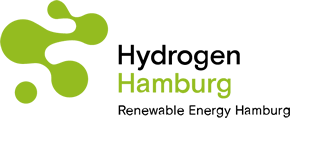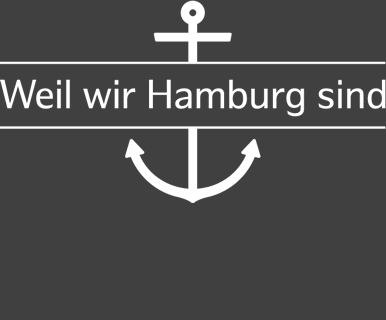Details
The Netherlands plans international corridor for liquid hydrogen From Hamburg to the world: EEHH excursion to Amsterdam
Following an insightful visit to the World Hydrogen Summit in Rotterdam, the EEHH Cluster Agency led an excursion to Amsterdam with 19 member companies on 22–23 May 2025 to learn about hydrogen projects in the Port of Amsterdam and the activities of the H2A-Hydrogen to Amsterdam consortium.

Following an insightful visit to the World Hydrogen Summit in Rotterdam, the EEHH Cluster Agency led an excursion to Amsterdam with 19 member companies on 22–23 May 2025 to learn about hydrogen projects in the Port of Amsterdam and the activities of the H2A-Hydrogen to Amsterdam consortium.

Establishment of the hydrogen terminal in full swing
The Port of Amsterdam is subject to special security requirements due to its location close to the city centre. Amsterdam is positioning itself as a future hub for green LH2 (liquid hydrogen), LOHC (liquid organic hydrogen carriers), LIHC (liquid inorganic hydrogen carriers) and SIHC (solid inorganic hydrogen carriers) in particular. Potential customers for the green fuels on the local market include the steel manufacturer Tata Steel Netherlands and Amsterdam Schiphol Airport. The Port is also connected to three European TEN-T corridors, enabling the transport of energy to the European hinterland.
The EEHH excursion kicked off with a visit to the Evos terminal, where the delegation learned how Evos is working to grow import infrastructure for LOHC and other H2 derivatives. The same evening, Dutch companies (LH2Europe, Gasunie, Alliander, Hydrogen Prospect, Titan Clean Fuels and other partners) came together at the invitation of the EEHH Cluster Agency for a more personal meeting with Hamburg businesses.
A workshop focusing on liquid hydrogen was held on the second day. ENGIE – consortium leader in the Horizon Europe project DelHyVEHR (Delivery of Liquid Hydrogen for Various Environment at HighRate) – presented the status quo after an inspiring welcome at the Dutch Ministry of Climate and Environment. The EEHH Cluster Agency sits on the Advisory Board of the project.
Components for large-scale LH2 refuelling stations are being developed up to technology maturity level 6 and then demonstrated in a large HRS as part of the DelHyVEHR project. The project findings are intended to demonstrate the advantages of using LH2 for the transport of heavy goods, including aviation, shipping and road transport. Among other things, initial results show that prices of €1.5/kg are feasible for LH2 in the maritime and aviation sectors and that aviation will hold the greatest market potential for LH2 HRS from 2045. The EEHH Cluster Agency plans to continue the dialogue for this purpose.

Hydrogen corridor between Oman and Europe
The ECOLOG talk was also extremely instructive. ECOLOG is building a global supply chain for LH2, which will be imported via the Port of Amsterdam. ECOLOG has the backing of major investors who have defined a certain time frame for the company to establish a hydrogen supply chain.
It is focused on the midstream and is taking charge of the steps from the export terminal, including hydrogen liquefaction and low-carbon transport to the import terminal. New vessel classes with an innovative zero-boil-off design, which have already received Approval in Principle (AiP), will be used for shipping.
An LH2 Joint Development Agreement was signed between the Omani hydrogen producer Hydrom Oman and ECOLOG in April 2025. The venture also involves other partners from the Netherlands (Gasunie NV) and Germany (Hamburger Hafen und Logistik AG/Metrans Rail (Deutschland) GmbH, Duisport-Duisburger Hafen AG and EnBW Energie Baden-Württemberg AG). The aim is to establish the world's first corridor for liquid hydrogen connecting the Port of Duqm (Oman), the Port of Amsterdam and important logistics hubs in Germany.
The agreement sets out a series of phases for realisation of the hydrogen corridor. The first step will be to build a centralised facility for liquefaction, storage and export at the Port of Duqm. A second step will involve discussions and negotiations on the pricing and transport of liquid hydrogen to the off-taker in the greater Amsterdam area as well as in other parts of the Netherlands and Germany. Finally, special infrastructure will be being developed for the entire corridor, including export and import terminals in the ports of Duqm, Amsterdam and Duisburg. The integration of gas pipelines, rail connections and inland waterways will ensure broad distribution of gaseous and liquid hydrogen.
Conclusion
The EEHH delegation was extremely impressed by the forward-looking and pioneering hydrogen strategy and the associated projects in Amsterdam and the Netherlands. As two of Europe's most important maritime hubs, Hamburg and Amsterdam will be able to engage in close dialogue and entrepreneurial cooperation and hence drive the energy transition by harnessing additional potential during the hydrogen ramp-up.
The EEHH Cluster Agency would like to thank its Dutch partners and the member companies who travelled with them for the joint trip.




